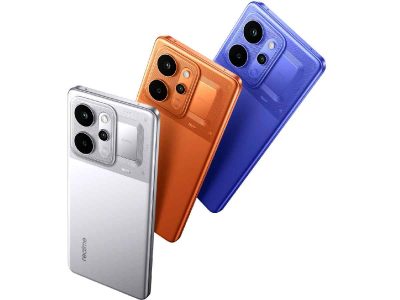As fans complain about the inferior performance of the Exynos 990 against the Snapdragon chipset, Samsung tries to minimise the damage
The current smartphone industry has no dearth of quality flagship phones, enough to dazzle even the most ardent tech fans. In such a market, when an established company like Samsung launches its latest model, expectations are high. However, the year 2020 has not been a kind to the current Samsung flagship — the Galaxy S20 series.
Powered by either the Snapdragon 865 or the Exynos 990 chipsets, depending on the location of purchase, the Galaxy S20 series smartphones are amongst the most promising offerings from the company. However, a petition on Change.org has been steadily gaining traction. This petition with over 33,000 signatures calls for Samsung to stop using the Exynos chipset in their flagship smartphones.
Not without cause. The Exynos, which is also Samsung’s in-house chipse, has consistently been criticised for weaker performance than its competitors, especially the contemporary chipsets manufactured by Snapdragon.
For those of you out there who are unaware, the Exynos version of the S20 series is sold in European and South-east Asian Market while the Snapdragon version has in the past only been available in the American and Chinese markets. Though there have been complaints in the past about the disparity in the performance of the two chipsets, matters have never reached such a pass.
The $1,400 price tag of the S20 Ultra along with reviews which point towards the comparatively weaker performance of the Exynos chipset seems to have exasperated fans.
Reviewers and fans alike have been complaining that the Galaxy S20 phones using the Exynos 990 chipset have slower CPU and GPU performance, higher clock speed throttling, inefficient heat management, and less battery life in comparison to the variants with the Snapdragon 865 chipset.
Users on the Samsung community blog have also expressed their anger about the lack of choice given to Indian consumers. “It comes with Exynos to keep the price affordable, but they should give the option to choose… with a price difference,” a user wrote. Another user further talks about the ‘horrible battery life and horrible gaming performance’ when compared to Snapdragon alternatives. “Any premium user paying that price and getting an Exynos processor is being cheated,” he adds.

Tech experts, who have compared the performance of the Samsung S20 Snapdragon variant with its Exynos counterpart, vouch for the disparities between the two. While some games like PUBG and Resident Evil 4 did not show much difference when played on the two variants, other games like Zelda and Super Mario had some considerable distinction. Many say that the gaming experience on the Snapdragon variant was very smooth, while on the other hand, it was very hard to play the same game on the Exynos variant. Lack of consistency made the game ‘unplayable’.
Though the gaming experience is not just the only marker of trouble for the Exynos chipset, reasons why it has upset Samsung fans go way beyond. One of the major reasons being the Snapdragon 865 version has a longer battery life than the Exynos 990. When comparing the Samsung Galaxy S20 Ultra Snapdragon and Exynos battery life, it was discovered that the Snapdragon variant performed 27-33% better than the Exynos variant, depending upon the display mode and screen refresh rate. Some users have also complained about the problem of their Exynos variant overheating and thereby disrupting the phone’s performance.
Another rather interesting development is the company’s decision to use the Snapdragon 865 instead of its Exynos chipset in its home country of South Korea. This move especially brought about the trail of speculation alleging that the company knew about the weaker performance of the Exynos chipset.
So what has prompted Samsung to keep using the weaker Exynos chipset in some markets?
As mentioned earlier, the Exynos chipset is developed and manufactured by Samsung itself. In such a scenario, the use of a proprietary chip in different phones at different price ranges helps increase the profitability while allowing the company to price its handsets more aggressively. By using the Exynos chip, Samsung can increase profit margins, while giving the users a competitively priced flagship phone.
However, keep in mind that the Android smartphone market has a lot of well-established competitors like OnePlus and Huawei and they, in the long run, can chip away at Samsung’s fanbase. And though Samsung so far has blamed the low sales on the S20 series on the Coronavirus pandemic, negative reviews and disenchantment of fans cannot be ruled out.
Responding to the bricks Samsung received for its decision to use Exynos chipsets, it released an official statement that said, “Both the Exynos and Snapdragon processors go through the same strict and rigorous, real-life testing scenarios in order to deliver consistent and optimal performance over the entire lifecycle of the smartphone”. Fans, however, continue to stay unimpressed by Samsung’s statement.
Having personally used the Exynos variant of the new Samsung S20 for almost a month now, this writer feels the performance of the phone is not up to the mark, especially keeping in mind the hefty price tag and the availability of the cheaper and equally if not more capable OnePlus 8 Pro. But whether Samsung will listen to its fans and acknowledge their needs is something we will have to wait to see.
(Cover: Developed and manufactured inhouse, Samsung claims the performance of the Exynos 990 is at par with its Snapdragon alternative // Photo:dealntech.com)





